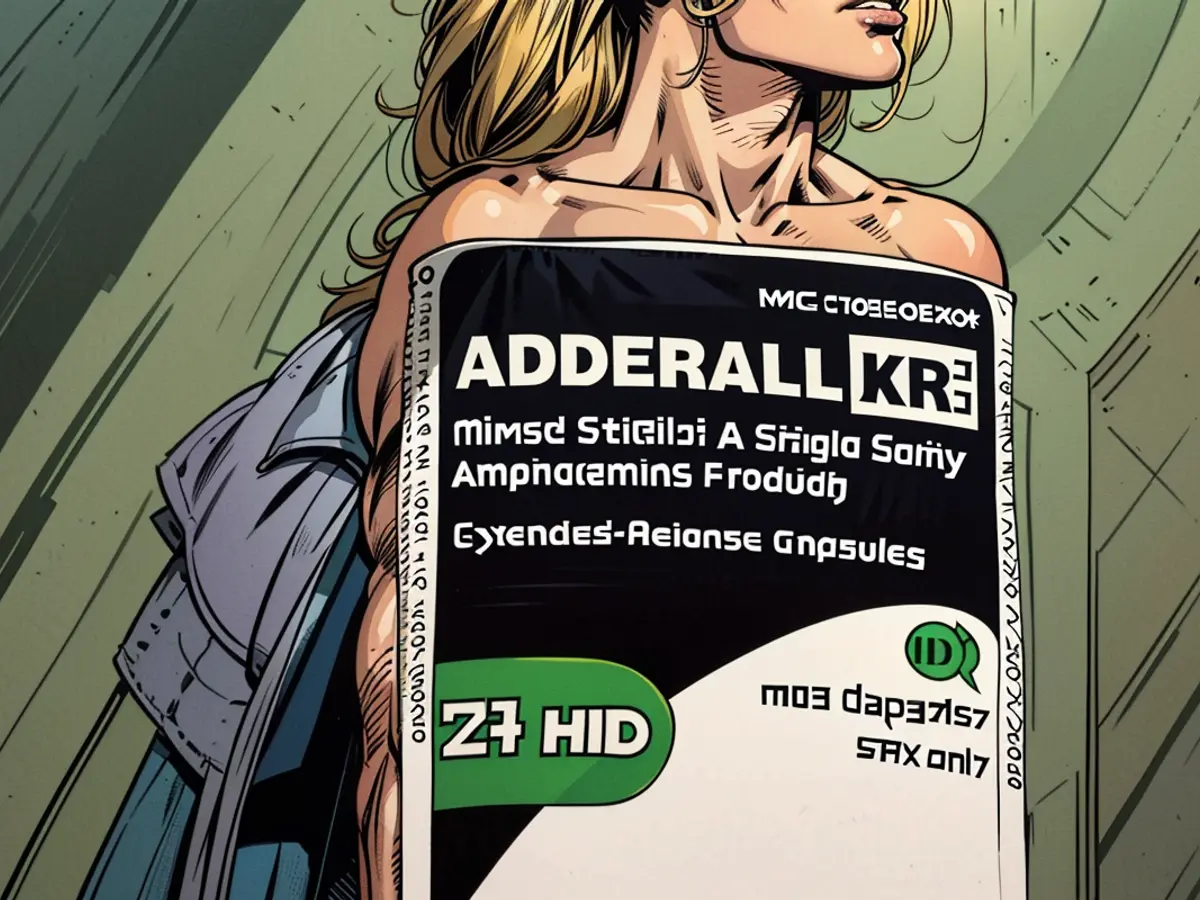Health-care startup executives' arrests could lead to disruptions in access to ADHD medications, CDC cautions.
On a Thursday, the US Centers for Disease Control and Prevention (CDC) issued a health advisory warning about disruptions in access to care for individuals using prescription stimulants and potential increased risks for injuries and overdose.
Simultaneously, the US Department of Justice (DOJ) announced a federal healthcare fraud indictment against two executives from the digital health company Done Global. Their website describes the company as "making high-quality psychiatric chronic care management more accessible and affordable for patients."
It's not yet determined how many patients will be affected by these arrests, but the CDC predicts 30,000 to 50,000 people aged 18 years or older could experience disruptions.
The founder and CEO of Done Global, Ruthia He, was arrested in Los Angeles, facing charges of distributing Adderall online, conspiring to commit healthcare fraud, and obstructing justice, per the DOJ's statement. David Brody, the company's clinical president, was arrested in San Rafael, California.
According to the DOJ, He and Brody generated over $100 million in revenue from more than 40 million pill prescriptions, targeting "drug seekers" and instructing prescribers to prescribe stimulants to patients even if they didn't qualify.
"These defendants exploited the COVID-19 pandemic to develop and carry out a $100 million scheme to defraud taxpayers and provide easy access to Adderall and other stimulants for no legitimate medical purpose," Attorney General Merrick Garland said in a news release. "Those seeking to profit from addiction by illegally distributing controlled substances over the internet should know that they cannot hide their crimes and that the Justice Department will hold them accountable."
Brody's attorney, Naomi Chung, claimed he pleaded not guilty to all charges. "Dr. Brody worked to promote access to medical treatment for those with ADHD in the face of both widespread stigma and the unprecedented challenges of a global pandemic."
Efforts to get in touch with He or the company were unsuccessful, and CNN has not been able to confirm whether she has retained a lawyer as the case details are still under seal.
This is the Justice Department's first criminal drugs distribution prosecution related to prescribing via telemedicine through a digital health company, the agency announced. If convicted, He and Brody could face up to 20 years in prison.
Last year, a CDC study revealed rising prescriptions for stimulants used to treat attention-deficit/hyperactivity disorder (ADHD) during the pandemic, particularly among adults. From 2016 to 2020, the number of people with prescription fills for stimulant drugs remained stable. However, there was a considerable increase in 2021, with a more than 10% growth across most age groups.
The new CDC advisory cautioned that there is a prescription drug shortage in the United States affecting several stimulant medications commonly prescribed for ADHD, a brain disorder that affects approximately 4% of adults and 10% of children in the US. Approximately one-third of children with ADHD continue to have the disorder into adulthood.
"Patients whose care or access to prescription stimulant medications is disrupted, and who seek medication outside of the regulated healthcare system, might significantly increase their risk of overdose due to the prevalence of counterfeit pills in the illegal drug market that could contain unexpected substances, including fentanyl," according to the CDC advisory.
The CDC also strongly urged individuals struggling to access prescription stimulant medications to avoid using medication obtained from anyone except a licensed clinician and licensed pharmacy. It's crucial that they receive overdose prevention education and mental health support. The advisory added that without proper treatment, ADHD can lead to social and emotional impairment, a higher risk of drug or alcohol use disorder, unintentional injuries, and suicide.
"As more healthcare needs are met through telemedicine, we will not tolerate fraud schemes that seek to recklessly exploit digital technologies," Christi Grimm, inspector general of the US Department of Health and Human Services, said in the DOJ's statement. "We will continue to work with our law enforcement partners to protect the enrollees of federal health care programs by ensuring that requirements for the appropriate, legal prescribing of stimulants and other drugs are always met and those who choose to violate them are held accountable."
CNN’s Nadia Kounang contributed to this report.
The CDC's health advisory reminded people of the dangers associated with obtaining medication from unauthorized sources, increasing the risk of overdose due to counterfeit pills potent with unknown substances, like fentanyl. They urged anyone facing disruptions in access to prescription stimulant medications to seek assistance in getting treatment for ADHD and warned of the perils of the illegal drug market. It noted that those struggling with ADHD are more prone to social and emotional impairment, addiction issues, injuries, and suicide if left untreated. The Department of Health and Human Services' inspector general, Christi Grimm, emphasized the importance of maintaining a regulated healthcare system to avoid such exploitations.
Read also:
The arrests of Ruthia He, the founder and CEO of Done Global, and David Brody, the company's clinical president, could potentially impact the supply of Adderall and other stimulants, as they are charged with distributing these drugs online and conspiring to commit healthcare fraud. The CDC warned that disruptions in access to prescription stimulant medications could increase the risk of overdose due to the prevalence of counterfeit pills in the illegal drug market.








